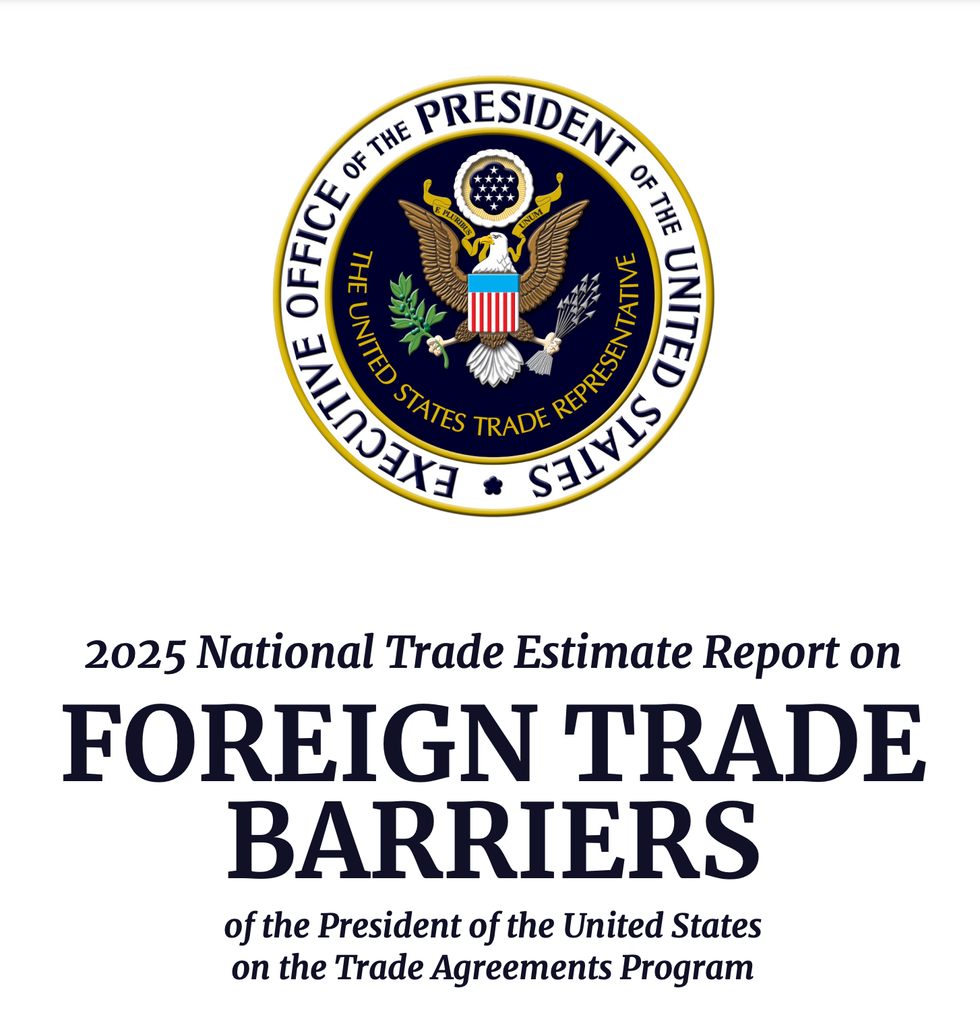Tory peer slams 'alarming' plans to let EU 'control' UK food standards: 'Who would trade with us?!'
GB
The document, prepared by the Office of US Trade Representative ahead of Donald Trump's 'Liberation Day', seethes at the EU’s food and veterinary standards that Britain looks set to adopt
Don't Miss
Most Read
Trending on GB News
GB News has sifted through an official US trade document that exposes Keir Starmer's high-stakes gamble as he looks to secure a US trade deal.
It comes as British negotiators close in on an agreement to adopt the EU’s food and veterinary standards, which could be finalised as early as next month.
The proposal, which would involve the UK adopting what is known as "dynamic alignment" with Brussels in these areas, has long been championed as a solution to the ongoing trade frictions, particularly concerning the Northern Ireland Protocol.
However, it would also bring some UK food regulation under the oversight of the European Court of Justice — a non-negotiable for Brexiteers.
Dynamic alignment could also shut out American agricultural products, which is said to be a key clause in a UK-US trade deal, which US Vice President JD Vance has suggested is on the table.
As a result, Starmer's critics say he's at risk of sabotaging a deal that has been doggedly pursued since Britain departed from the EU.
Among them is Nigel Farage, leader of Reform UK, who told The Telegraph: “If we align with the European Union on food and veterinary standards, we risk shutting America out. It’s a very silly move in a fast-changing world. What I prioritise is keeping our hands free. Long-term, financially, America is a much bigger prize.”
Lord Frost, the UK’s former chief Brexit negotiator, echoed this sentiment, arguing that such an agreement would make talks with a future Trump White House "more difficult".
He said: “One of the things the Americans most want is access to our food and agriculture market,” he said. “We would be selling away our ability to set our rules for no real benefit, and meanwhile, making it more difficult to do free trade agreements with countries we don’t yet have them with—most notably America.”
Frost added: “It just makes no sense to me. The world has changed, and they can’t adjust their policy. That’s fundamentally what the problem is.”

America's 34-page hit job on 'burdensome' EU has Starmer on the brink of torching US trade deal
Getty Images
Do they have a point?
An official US Administration document, released on the eve of Trump's 'Liberation Day', does not augur well for Britain.
The document, prepared by the Office of US Trade Representatives, discusses the largest export markets for the United States, covers nearly 60 trading partners and looks at all forms of trade barriers.
The review formed the basis of Trump's new tariffs, which included a 20 per cent rate on most EU imports - double the rate imposed on UK goods (he later paused the measures in response to market turmoil).
What immediately leapt out from the 397-page document is how hefty the section devoted to the EU's trade practice is, running at 34 pages.
In contrast, the UK section gets a more modest five-page treatment.
The EU's thicket of regulations comes into the cross-hairs, with officials heaping scorn on the bloc's food and veterinary standards, which Starmer looks set to adopt.
In one passage, the document states: "Despite scientific evidence that such meat is safe for consumers, the EU maintains various measures that impose bans and restrictions on meat produced using hormones, betaagonists, and other growth promotants approved for use in the United States.
"U.S. producers cannot export meat or meat products to the EU unless they participate in a costly and burdensome verification program to ensure that hormones, beta agonists, or other growth promotants have not been used in their production."
LATEST MEMBERSHIP DEVELOPMENTS

The trade document spells out the dangers of "cosying up with Brussels"
UNITED STATES TRADE REPRESENTATIVE
In a separate passage, concerns are raised about the restrictions placed on imported veterinary medicinal products, which US officials write are "not based on science or risk and instead promote the adoption of EU practices by third countries rather than recognising the alternative ways that different competent authorities can arrive at the same level of product safety".
The trade document also states that US exporters are concerned about exporting products of animal and animal origin to the EU market and to third-country markets that require transit through the EU because of the "unpredictability" of health certificate requirements.
The EU has not provided "scientific evidence" to justify its certification requirements and subsequent modifications, the document states.
The EU's regulatory approach to meat exported to the EU also comes under fire, with officials taking aim at the EU's insistence that all animal byproducts sourced from animals raised under conditions "not essentially identical" to those in the EU to be hazardous materials.
The lack of authorisation for Live cattle exported from the United States or transited through the EU en route to third countries, due to EU certification requirements for several bovine diseases, is also deemed unworkable.
The section on the EU concludes with the following: "The United States face persistent barriers entering and maintaining access to certain sectors of the EU market, which limits the opportunity of U.S. workers and businesses to benefit from transatlantic trade."
The document spells out the dangers of what shadow foreign secretary Dame Priti Patel has described as "cosying up with Brussels" at a time when the "Government should be prioritising securing a trade deal with one of the world’s largest economies".
However, not everyone agrees with this assessment. Farmer and campaigner James Wright tells GB News that a trade agreement risks throwing his community under the bus as it "would allow cheaper food produced under lower standards to be imported into the UK with no tariffs or quotas".








